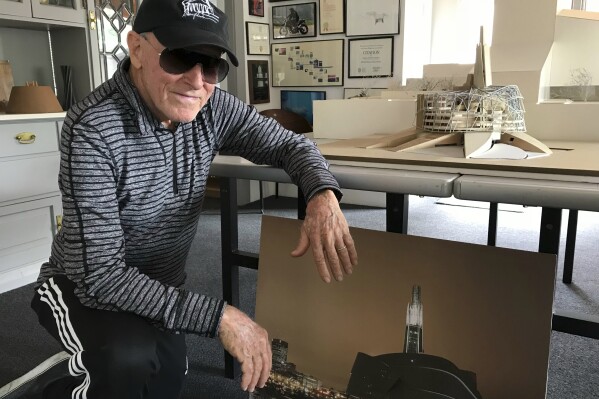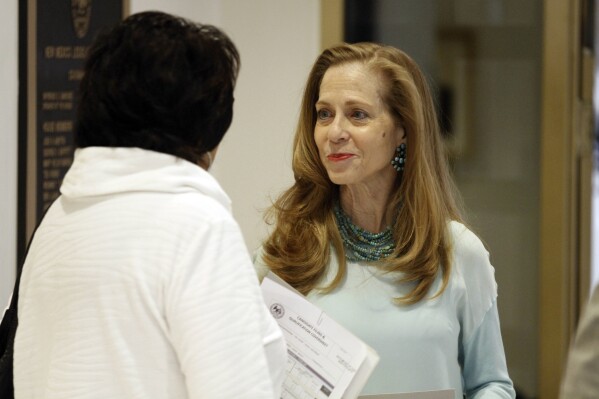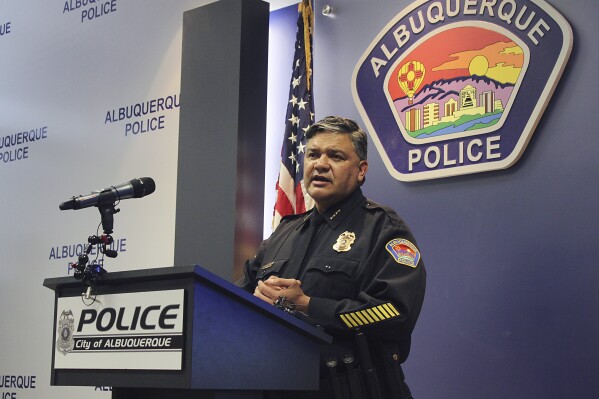Afghan refugee stands trial in first of 3 killings that shocked Albuquerque’s Muslim community
ALBUQUERQUE, N.M. (AP) — Muslims in New Mexico’s largest city are hoping more light will be shed on what led to the shooting deaths of three men from their community during the summer of 2022 as prosecutors begin to make their case against an Afghan refugee charged with the killings.
Attorneys were expected to deliver opening statements in an Albuquerque court Tuesday in what will be the first trial for Muhammad Syed, who settled in the U.S. several years ago with his family. He denied involvement in the killings after being detained just days after police put out a public plea for help and shared photographs of a vehicle believed to be involved in the crimes.
Tips poured in and investigators turned their attention to Syed. Police stopped him in his vehicle in August 2022 more than 100 miles (160 kilometers) from Albuquerque. He told authorities he was on his way to Texas to find a new home for his family, saying he was concerned about the ambush-style killings.
Syed, who speaks Pashto and no English, has remained in custody without bond since his arrest. He is charged with three counts of murder and four charges of tampering with evidence. Police also have identified him as the suspect in the killing of a fourth Muslim man, but no charges have been filed in that case.



While some court documents remain sealed, others shed no light on a possible motive, leaving Albuquerque’s Muslim community struggling to understand why the men were targeted.
Prosecutors during previous court hearings described Syed as having a violent history. His public defenders have argued that previous allegations of domestic violence never resulted in convictions.
The first trial centers on the death of Aftab Hussein, 41, who was slain the night of July 26, 2022, after parking his car in his usual spot near his home.
Syed will be tried separately in the deaths of Muhammad Afzaal Hussain, a 27-year-old urban planner who was gunned down Aug. 1 while taking his evening walk, and Naeem Hussain, who was shot four days later as he sat in his vehicle outside a refugee resettlement agency on the city’s south side.
Prosecutors plan to call as witnesses police officers and other authorities involved in the investigation. However, the judge is prohibiting testimony about ShotSpotter technology used by the police force to detect the sound of gunshots.
Prosecutors also cannot directly introduce as evidence statements Syed made to a detective while being questioned. Defense attorneys argued that Syed’s rights were violated because the detective, through an interpreter, did not adequately inform Syed of his right to a court-appointed attorney.
According to the initial criminal complaint filed by Albuquerque police, investigators determined that bullet casings found in Syed’s vehicle matched the caliber of the weapons believed to have been used in the July 26 and Aug. 1 killings and that casings found at the crime scenes were linked to guns found at Syed’s home and in his vehicle.
Federal authorities in court filings pointed to cellphone records and accused one of Syed’s sons of possibly helping his father track Naeem Hussain before he was killed. Shaheen Syed was accused of providing a false address when purchasing a gun from a local shop in 2021 and reached a plea agreement with federal prosecutors in January.
In the case of the elder Syed, a murder conviction would carry a maximum sentence of life in prison.
Disclaimer: The copyright of this article belongs to the original author. Reposting this article is solely for the purpose of information dissemination and does not constitute any investment advice. If there is any infringement, please contact us immediately. We will make corrections or deletions as necessary. Thank you.





